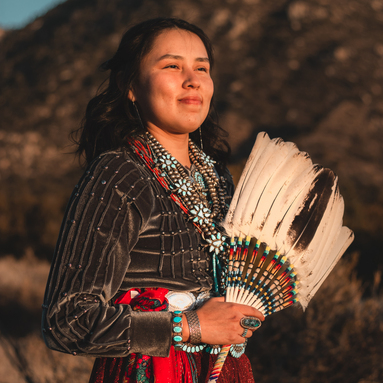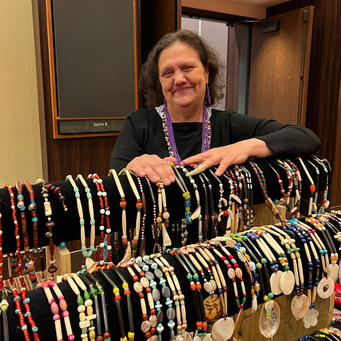Protect Our Cultural Heritage
|
There are many laws that apply to the sale of Native-made items, including federal, state and Tribal laws. Native Nations are separate sovereign Nations—each with their own governance systems and bodies of law. None of those 574 Department of Interior recognized Tribes and approximately 400 state recognized Tribes, Bands and Communities have ever given up their inherent authority or jurisdiction over their tangible and intangible cultural heritage. Native human remains, burial objects and items of sacred and cultural patrimony are recognized by state, federal and Tribal laws as items that no individual has the authority to remove from their original Native Nation ownership, and are items held as community property by those Native Nations. An individual would need to show that they obtained the consent of those Native Nation governments at the time the cultural items were taken.
In addition to these legal obligations, auction houses and dealers have professional and ethical responsibilities to deal honestly with the public and work in good faith to only sell items that have a clean title of ownership. Unless the auction house or dealer can show proof of consultation directly with the Native Nation where an item originated, then it is failing its legal and professional obligations to the public. Buyers and collectors interested in “art,” “antiquities” and “artifacts” from American Indian, Alaska Native or Hawaiian Peoples should carefully consider whether these sensitive cultural and sacred items are legal and ethical investments. Perception—and laws—on collecting Indigenous cultural heritage are changing to rigorously favor the protection and repatriation of these items. The Safeguarding Tribal Objects of Patrimony Act was recently signed into law requiring proof of ownership before a person can export an item. |
Indian Arts and Crafts Act
We were instrumental in the passage of the original Indian Arts & Crafts Act of 1935. We worked with Tribes to understand the issues and to make sure the act's language favorably benefitted Native Nations and Native Peoples. With the passing of this bill and the establishment of the Arts and Crafts Board, Native Nations have, ever since, been better able to preserve the integrity of their creations for the public.
|
The Indian Arts and Crafts Act of 1990 (P.L. 101-644) protects buyers and the economic and cultural livelihood of Native artists, craftspeople and Native Nations.
It is illegal to market art or craftwork using the name of a Native Nation if a citizen or a certified Indian artisan of that nation did not actually create the art or craftwork. ALL products must be marketed truthfully regarding the Native Nation citizenship of the artist so as not to mislead the buyer due to the Indian Arts and Crafts Act. Before buying Native art or craftwork, look for documentation about compliance with the Indian Arts and Crafts Act or on the authenticity of art and craftwork offered. Check the event vendor requirements, website policy page, media ads, promotional flyers, printed programs regarding the authenticity of products being offered for sale. If there are no statements about compliance with the Indian Arts and Crafts Act or on the authenticity of art and craftwork offered, ask for written verification from the individual that their art was produced by a Native Nation citizen or by certified Native artists. Some traditional items frequently copied by non-Natives include Native-style jewelry, pottery, baskets, carved stone fetishes, woven rugs, kachina dolls, and clothing. Products sold using a sign claiming "Native American Jewelry" would be a violation of the Indian Arts and Crafts Act if the jewelry was produced by someone other than a citizen, or certified Native artisan, of a Native Nation. Products advertised as "Navajo Jewelry" would be in violation of the Act if they were produced by someone who is not a citizen, or certified Native artisan, of the Navajo Nation. |
Federal Government Consultation Announcement
U.S. Department of Interior Indian Arts & Crafts Act Consultation
The Department of the Interior has scheduled listening sessions on August 18 seeking Native Nation and Native artist input on draft regulations that oversee the Indian Arts and Crafts Board, 25 CFR Chapter II. The draft revisions seek to modernize the Indian Arts and Crafts Act’s regulations, which are implemented by the Indian Arts and Crafts Board.
The Department of the Interior has scheduled listening sessions on August 18 seeking Native Nation and Native artist input on draft regulations that oversee the Indian Arts and Crafts Board, 25 CFR Chapter II. The draft revisions seek to modernize the Indian Arts and Crafts Act’s regulations, which are implemented by the Indian Arts and Crafts Board.











